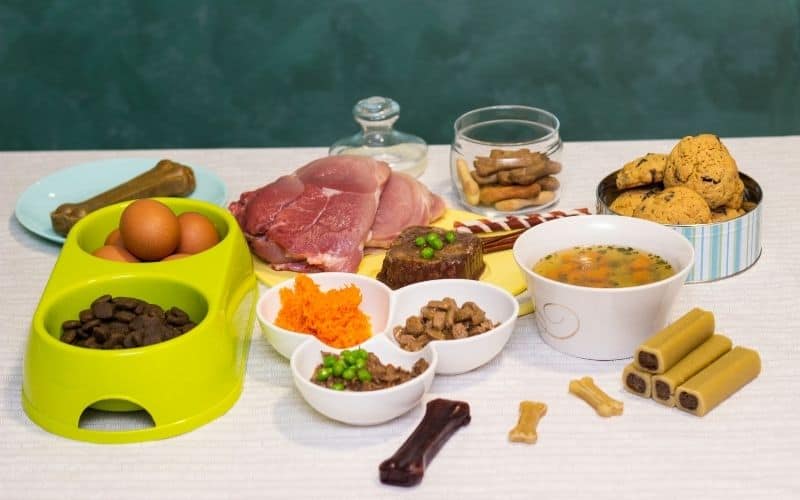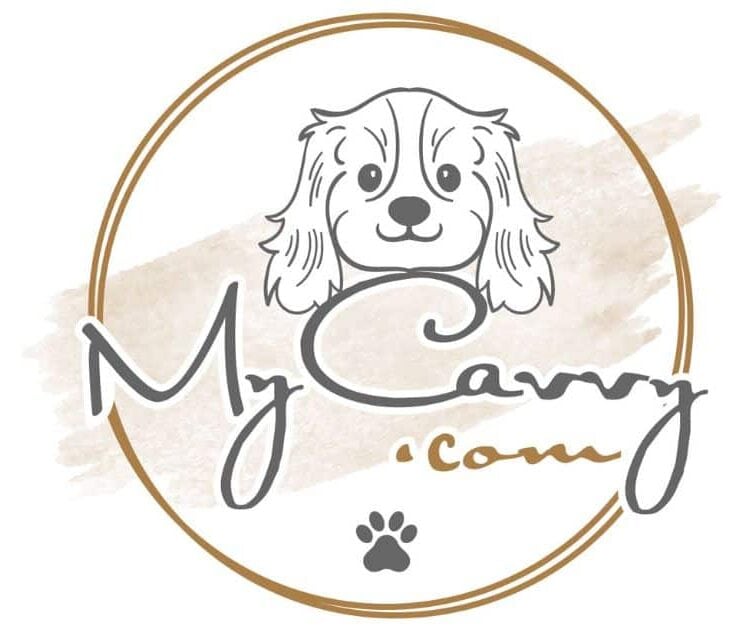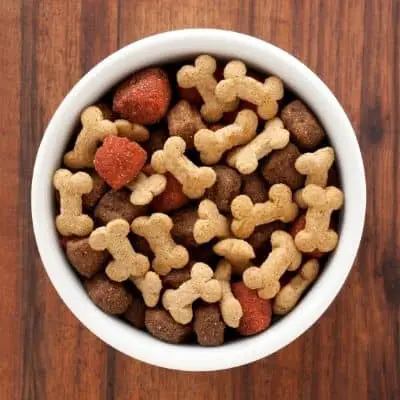
The Cavalier King Charles Spaniel is a toy breed of dog, classified as the 16th most popular dog breed in the United States in 2019. When in optimal health, the breed lives between 9 and 17 years, on average. The best way to ensure that your Cavalier King Charles Spaniel lives a long, healthy life is by feeding the dog based on its unique nutritional needs.
Feed Cavalier King Charles Spaniels a balanced diet with protein, carbs, fat, minerals, and vitamins. Keep caloric intake in check, with 90% devoted to food and 10% to treats to prevent obesity. Supplements such as glucosamine, vitamin C, and MCT may help manage common health issues in the breed.
This article provides a feeding guide for Cavalier King Charles Spaniels. It discusses the importance of a balanced diet and caloric requirements, as well as supplements that may manage or help prevent common health issues within the breed.
Provide a Balanced Diet
To maintain optimal health, the Cavalier King Charles Spaniel requires a nutritionally-balanced diet. Whether you’re feeding your canine a raw, homemade, or commercial dog food, the most important aspect is that it offers the appropriate balance of protein, fat, carbohydrates, vitamins, and minerals.
Below, we’ll examine each of these nutrients, their benefits, and potential sources.
Protein Contributes To Proper Growth
Considered the most essential nutrient in a dog’s diet, protein contributes to proper growth, healthy fur, and skin, hormone and enzyme production, as well as muscle repair and development.
Protein in dog food typically comes from one of the following animal products:
- Chicken
- Lamb
- Turkey
- Beef
- Fish
- Eggs
When feeding a Cavalier King Charles Spaniel, choose protein from a high-quality source. Deboned chicken or beef or fresh whole fish like salmon or whitefish, are excellent options. Animal by-products and plant-based proteins, such as beans, lentils, or chickpeas, are acceptable as well but do not provide the same high-quality protein as meat sources.
Carbohydrates For Energy
Carbohydrates are a dog’s primary energy source. It offers fiber, helps with glucose regulation, and maintains the nervous system and organ function.
The best carbohydrates for your Cavalier King Charles Spaniel are complex carbohydrates, which digest slowly and provide a longer source of energy. They improve digestion, regulate the immune system, and contribute to a healthy metabolism.
High-glycemic carbohydrates (also known as “simple carbohydrates”) should be avoided. These include:
- Wheat
- White Rice
- Corn
- Potatoes
- Peas
These carbohydrates provide little in the way of nutritional value and may contribute to food allergies in your Cavalier.
Instead, opt for less starchy vegetables, digestible carbohydrates, and fruits, such as:
- Leafy greens
- Cauliflower
- Apples
- Brown Rice
- Buckwheat
- Oats
- Tapioca
Fat For Cell Development
Fat is critical for the normal development of cells, nerves, muscles, and other bodily tissue. The Cavalier King Charles Spaniel requires fat, as it provides a source of concentrated energy.
Most of a dog’s fats come from meat and other animal sources, but some foods provide plant-based fats, including:
- Olive oil
- Walnut oil
- Avocado oil
- Sunflower oil
- Coconut oil
Generally, most pet owners prefer animal fats, which are more biologically valuable to our carnivorous canines. With that said, plant-based fats are suitable as well, and a dog’s body uses them in much the same way.
Minerals and Vitamins
The Cavalier King Charles Spaniel, along with other breeds, needs minerals for the proper support of bones, cartilage, nerves, fluid regulation, electrolyte balance, hormone production, and oxygen transportation throughout the body.
The most important minerals include:
- Calcium
- Potassium
- Sodium
- Magnesium
- Iron
- Zinc
A Cavalier King Charles Spaniel’s diet should also contain vitamins A, B, C, D, E, and K. These vitamins ensure a healthy coat and skin, strengthen bones and teeth, and provide the canine with the overall energy its body needs to function.
Most commercially available dog foods provide these vitamins and minerals. For homemade foods or raw diets, you may need to offer supplements.
Feed Within Reasonable Caloric Guidelines
After establishing what nutrients your Cavalier King Charles Spaniel needs for optimal health, determine the amount of food your dog should consume.
How To Calculate a Cavalier King Charles Spaniel’s Caloric Needs
As a toy breed, the Cavalier King Charles Spaniel has a higher energy level than medium or large-breed canines. As such, they require more calories per pound of body weight.
Generally, adult Cavalier King Charles Spaniels weigh between 13 and 18 lbs (5.89 and 8.16 kg). Based on these average weights, the average Cavalier requires between 370 and 475 calories per day to maintain its weight.
However, not all dogs need to maintain weight, as some need to lose or gain if they’re overweight or underweight, respectively.
The Ohio State University offers a basic calorie calculator for dogs that allows you to calculate your dog’s caloric needs based on several things, including their age, current weight, and other factors (i.e., obesity, activity level).
Avoiding Obesity in Your Cavalier King Charles Spaniel
Obesity is a dangerous predictor of health issues in canines and should be avoided at all costs. According to VCA Animal Hospitals, between 25% and 30% of canines in America suffer from obesity.
So there’s at least a 25% chance that your Cavalier King Charles Spaniel carries extra weight.
Avoiding obesity is so important. The American Veterinary Medical Association found a correlation between obesity and reduced life expectancy. Dogs that maintain a healthy weight live nearly 2 ½ years longer than their overweight counterparts.
Feed Treats in Moderation
When calculating your Cavalier’s required caloric intake, be sure to include any treats. As a general rule, treats should make up 10% or less of your canine companion’s diet. Dog food, whether store-bought, raw, or homemade, should make up the majority (at least 90%) of your Cavalier’s caloric intake.
Feed Four Small Meals vs. Two Large Meals
It’s best to feed your Cavalier King Charles Spaniel three to four small meals per day versus two large meals. Not only does this ensure that your Cavalier stays full for longer, which decreases the likelihood of wanting extra treats, but it also provides your furry friend with a regular source of nutrients and energy.
Here’s how to determine the caloric intake for each feeding:
- Calculate your dog’s caloric needs.
- Subtract 10% of that total for treats.
- Divide the remaining calories by four (for four meals per day).
For example, a 13 lb (5.89 kg) Cavalier King Charles Spaniel requires approximately 370 calories per day.
Ten percent of those calories (37) should come from treats, and the other 90% (333 calories) should come from food. Split the remaining 333 calories by four to determine the caloric content of each meal. In this case, you’d serve 83.25 calories per meal, four times a day, in addition to the 37 calories of treats.
Feeding Pregnant or Lactating Cavalier King Charles Spaniels
A pregnant or nursing canine has higher caloric needs due to increased energy requirements before and after delivery. Generally, a pregnant Cavalier King Charles Spaniel may require two to four times the normal caloric intake.
Talk to your veterinarian about specific caloric needs or nutritional requirements for your pregnant canine.
Feeding Cavalier King Charles Spaniel Puppies
Puppies have specific nutritional and caloric requirements for their growing bodies and brains. Cavalier King Charles Spaniels, in particular, are very small dogs, so they tend to have higher metabolic rates, requiring the need for a higher caloric intake.
Most puppies get what they need from their mother, but after weaning, your Cavalier King Charles Spaniel puppies need specially-formulated puppy food. Choose a puppy formula for toy breed dogs.
Around six months of age, your Cavalier King Charles Spaniels may begin consuming an adult diet.
Health Supplements for a Cavalier King Charles Spaniel
Unfortunately, the Cavalier King Charles Spaniel is susceptible to multiple health issues. To ensure the best possible chance for a healthy life, consider supplementing your dog’s food with certain vitamins and minerals.
Heart Health
According to a study published in the United States National Library of Medicine, the Cavalier King Charles Spaniel is the breed with the highest incidence of Myxomatous Mitral Valve Disease (MMVD).
In fact, MMVD affects up to 90% of Cavaliers by the age of ten or older. This life-threatening condition accounts for the majority of deaths in the breed.
As such, a heart-healthy diet is critical to maintaining a healthy heart in your Cavalier King Charles Spaniel. While you may not be able to prevent the disease as it’s genetic, you can try to keep your dog’s heart as healthy as possible to reduce the likelihood of heart failure.
The United States Food and Drug Administration has warned that heart disease in dogs (specifically dilated cardiomyopathy) may be linked to grain-free diets. While the investigation is not yet complete, it may be worth it to consider avoiding grain-free diets for your Cavalier in the meantime.
Hip & Joints
Hip and joint disorders are relatively common among Cavalier King Charles Spaniels. In fact, up to 15.5% of Cavaliers experience hip dysplasia, and they’re one of the most common small dog breeds to need orthopedic intervention due to conditions such as Patellar Luxations.
By maintaining a healthy weight and supplementing with Glucosamine and Chondroitin, you may significantly reduce the likelihood of hip dysplasia and other joint issues in your Cavalier.
Eye and Ear Health
In addition to heart and joint troubles, Cavalier King Charles Spaniels also suffer from genetic eye and ear conditions, including:
- Corneal Dystrophy
- Otitis Media
- Dry Eye
- Cataracts
Ensuring that your Cavalier receives proper nutrition, including all necessary vitamins and minerals, you may help keep these eye and ear issues in check. Once they occur, vitamins and minerals, including antioxidants like vitamin C and E, may also help manage the disorders.
Brain Health
A study published in the United States Library of Medicine found that syringomyelia is an inherited disease found in nearly 95% of Cavalier King Charles Spaniels. The majority of these diseases are caused by the malformation of the caudal fossa due to a poorly developed occipital bone.
There is no cure for syringomyelia, but since it affects the brain, introducing supplements that support cognitive function may be beneficial.
Medium-chain triglycerides (MCT), including coconut oil, show promise for increasing brain function in canines. Additionally, The Ohio State University plans to launch a study to determine whether MCT reduces pain in canines with these disorders.
Conclusion
Due to their susceptibility to a multitude of serious health conditions, it’s crucial that Cavalier King Charles Spaniel owners find the best diet and nutrition for their pets. Before creating a feeding plan, consider the dog’s overall health, activity level, and weight. Meet all breed-specific needs and offer supplements to address any potential health concerns.
By maintaining a healthy, nutritionally-rich diet, you give your Cavalier King Charles Spaniel the best chance at a long, healthy life.
Sources
- American Kennel Club: 2019 Most Popular Dog Breeds
- Cavalier Health: Diets for Cavalier King Charles Spaniels
- Tufts Clinical Nutrition Service: Pondering Pet Protein: How Much Protein Should My Pet Get?
- United States National Library of Medicine: Hypoglycemia in Dogs: Causes, Management, and Diagnosis
- The Bones & Co.: How Fat is The Optimal Fuel Source for Dogs
- Dogs Naturally Magazine: Could Your Raw Fed Dog Be Lacking Important Vitamins and Minerals?
- OSU Veterinary Medical Center: Dog and Cat Calorie Calculator
- VCA Animal Hospitals: Obesity in Dogs
- American Veterinary Medical Association: Study Finds Overweight Dogs Live Shorter Lives
- United States National Library of Medicine: A Genomic Study of Myxomatous Mitral Valve Disease in Cavalier King Charles Spaniels
- United States National Library of Medicine: Echocardiographic Evaluation of the Mitral Valve in Cavalier King Charles Spaniels
- United States Food and Drug Administration: FDA Investigation into Potential Link between Certain Diets and Canine Dilated Cardiomyopathy
- Cavalier Health: Hip Dysplasia and the Cavalier King Charles Spaniels
- Cavalier Health: Eye Disorders in Cavalier King Charles Spaniels
- United States National Library of Medicine: Antioxidant Supplementation Increases Retinal Responses and Decreases Refractive Error Changes in Dogs
- United States National Library of Medicine: Syringomyelia in the Cavalier King Charles Spaniel (CKCS) Dog
- United States National Library of Medicine: Dietary Enrichment With Medium Chain Triglycerides
- The Ohio State University: Special Diet To Treat Syringomyelia Pain


4 thoughts on “Cavalier King Charles Spaniel: A Feeding Guide”